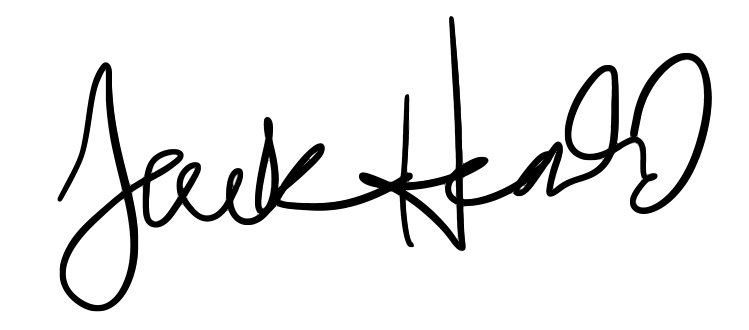These are some of the books that made me who I am. I highlight them here either because the writing is luminous, like Snow Falling on Cedars, or because the ideas are luminous.
I much prefer great writing. Some of these books though? The writing is awful. But the ideas are good enough to justify the lousy prose.
Non-Fiction
Non-fiction for me is primarily about ideas and insights. As a rule, I prefer great writing. And almost all of these books feature great writing in addition to the ideas & insights.
Where that isn’t true, I’ll tell you.
Adams, Scott
How to Fail at Almost Everything
Probably the most immensely practical self-help book ever published. And the most unique.
Barzun, Jacques
A master wordsmith at the pinnacle of his powers in his 7th decade as a published author. One of the best histories of Western Civilization you’ll ever read.
Bastiat, Frederic
One of the original libertarians. The original language was French, but the ideas know no boundaries.
Behe, David
Churchill, Winston
A History of the English Speaking Peoples
Churchill won a Nobel Prize in literature. This massive 4-volume work is one of the reasons why. Brilliant writing. Read this and Barzun and you’ll know everything worth knowing about western civilization in the last millenium.
Cousins, Norman
Cousins was dying. Doctors couldn’t help. He watched a lot of Marx Brothers movies and laughed himself back to health. The mind-body connection examined from the inside.
Frankl, Viktor
Read this, and you will be reluctant to ever complain about anything ever again. The perfect antidote to Snowflake Syndrome.
Hazlitt, Henry
If you’ve never studied economics, this is the book for you. Great writing, easy to read.
If you have studied economics and haven’t read this, then you might not know as much as you think.
Hoffer, Eric
This little book is so packed with insights and ideas, it might take as long to read as Churchills giant tome.
Hoffer examines the psychology of mass movements. Though it was written in the 1950’s, it is relevant to any age.
Kahnemann, Daniel
Lewis, C.S.
It’s astonishing to realize that philosophy and theology were mere hobbies for Lewis. His grasp of both, and his ability to explain their implications for modern life, beggar the efforts of the professionals.
Mill, John Stuart
The precision of Mill’s logic and language is a delight to read. He was writing from England around the same time Bastiat was writing from France.
Pawlicki, T.B.
Speculative engineering ranging from stone-age monoliths to space age anti-gravity devices. I learned about Velikovsky from this author.
Peterson, Jordan
I recommend the audio-book version of “Maps of Meaning.” Peterson himself reads it. It’s too dense to read without the author’s help.
Pirsig, Robert
Zen and the Art of Motorcycle Maintenance
Part travelogue, part meditation, part philosophy. All brilliant and utterly original
Seligman, Martin
This book helped me learn to actually fix my “stinkin’ thinkin’.”
Velikovsky, Immanuel
Velikovsky’s prose is horrendous. (In fairness, English is his 5th or 6th language.)
But the ideas and research are compelling enough to get me past the hideous prose. Trust me, these books will change you.
Fiction
Truth is easier to illustrate with fiction than to describe with non-fiction.
For a seeker after Truth, as I have always been, fiction is the preferred medium.
But the writing matters too. If the writing isn’t beautiful then the ideas should be True.
As it turns out, where you find Beauty, you will also find Truth.
Adams, Scott
God’s Debris: A Thought Experiment
A real mind-bender of a little book. Good brain exercise, easy to read.
Capon, Fr. Robert
The most profoundly grace-saturated book you – or anyone – will ever read.
Gaiman, Neal
Brilliant prose. Utterly original stories.
Guterson, David
A haunting love story told in brilliant prose.
Heinlein, Robert A.
One of the fathers of science fiction. These two are the best of Heinlein. Great ideas, great writing.
Hemingway, Ernest
Hemingway is my writing hero and a Pulitzer winner. An absolute master of language, he packed maximum emotional impact into minimum words. If I could write half as well, I’d be a happy man.
Lewis, C.S.
One of the great writers of the 20th century, Lewis’s fiction was not only brilliant to read, but also saturdated with Truth, Goodness and Beauty.
Rand, Ayn
The writing is wooden and the characters are two-dimensional. But the ideas are immensely powerful and make it worth slogging through the writing.
Warren, Robert Penn
Pulitzer prize winner, fictionalized account of the life of Huey P. Long, the original populist.
White, T.H.
Le Mort d’Arthur retold for an English audience.
Whittington, Brad
Whittington is a modern master of language. His style is much more Faulkner than Hemingway. Yet I love it. Brilliantly written characters as well.
Poetry
The best, most precise writing in the world is poetry. And the greatest poetry moves me like nothing else.
These are my favorite works of poetry.
Barrett-Browning, Elizabeth
The most romantic poetry ever written.
Lao Tzu
The ancient book of chinese wisdom. Get the Stephen Mitchell translation if you can.
The Bible
- Genesis
- Job
- Proverbs
- Psalms
Jordan Peterson’s lectures on the psychological significance of the biblical stories made a way for me to engage with the book of Genesis again.
And of course the poetry in the Bible is unsurpassed for agony and ecstasy.
Job especially is one of the most profound works ever to come from the mind of man.
